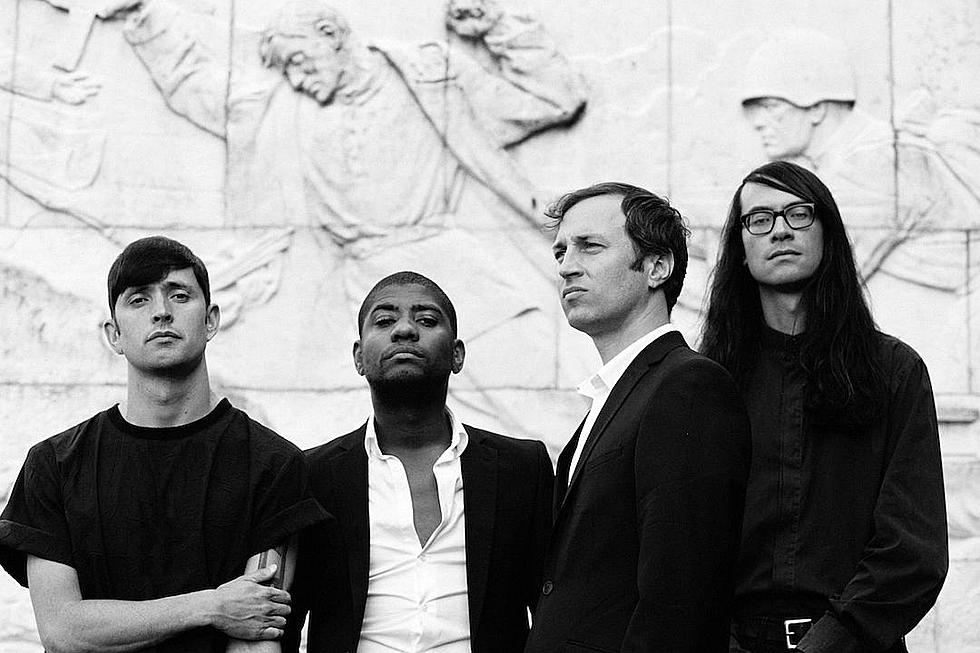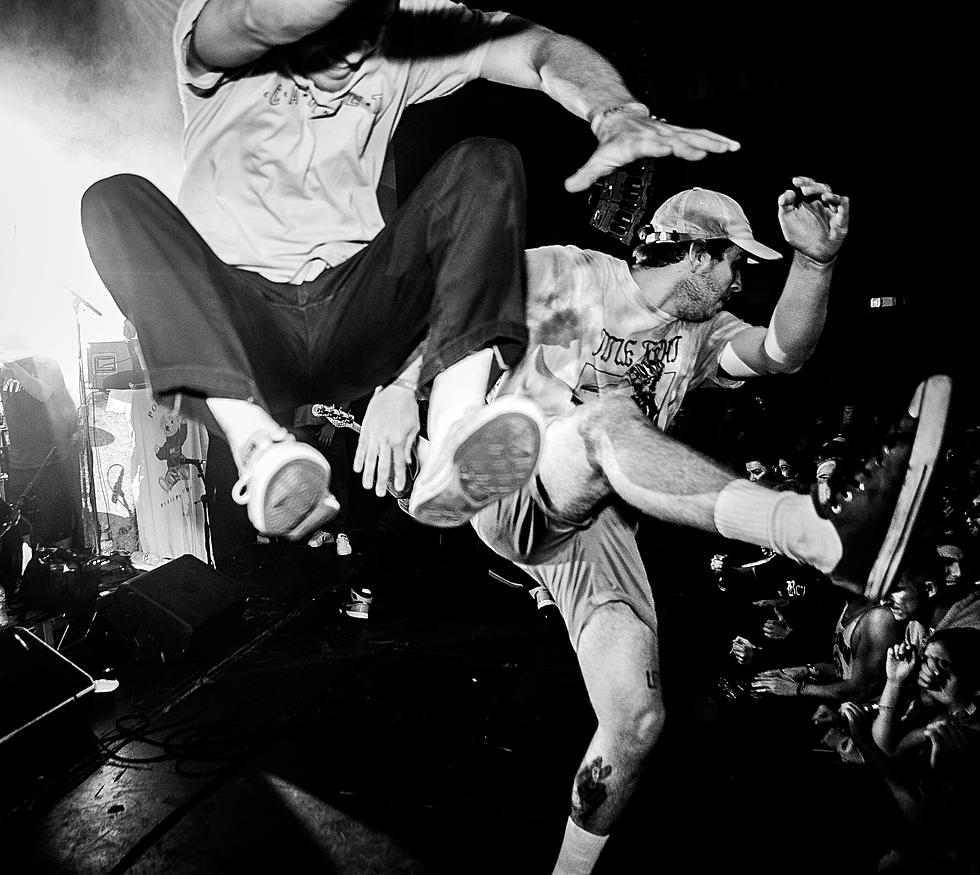
Why Are We So Afraid of Our Favorite Bands Evolving?
I took a strange path in terms of developing my taste in music. As a pre-teen and teenager in the mid-aughts with a whole lot of angst and not a lot of friends, of course I found myself drawn to the breakdowns and clean power chords that the various raven-haired bands of the Warped Tour Scene had to offer. The life-and-death dramatics of these bands spoke to me on a base level, as did their perfect combination of rebellion, anger and pop dynamics. It didn't require a lot of focus, there were other kids my age involved, and it was a refuge from all the teenage crises I faced.
Another part of me was intrigued by weird, experimental and extreme music at an early age. In seventh grade, an older cousin burned a data DVD packed with bands that he thought I might enjoy based on my love for Marilyn Manson. Through the finely organized folders, he curated artists like Darkthrone, Sunn O))) and Boris — bands capable of strange, exciting sounds that I had no prior experience with. Unfortunately, when a band like Neurosis rolled into town, the 21+ age restriction on venues barred me from actually experiencing what these bands were capable of live. So, I was resigned to the confines of the Warped scene.
I'm not arrogant to the point where I can't imagine another person having a similar experience, but at the time I couldn't find anybody in either world incredibly sympathetic to the other. Attempts to talk about Burzum or disEMBOWELMENT with any swoopy-haired teen would be met with confused looks, and any time I brought up Bring Me the Horizon having a good live show on a forum, I was dunked on en masse. While I experienced both genres concurrently, as I got older, I found friends moving from Warped to Roadburn and the like. Their tastes were evolving.
Now, as a music writer, I get to see how bands experience that shift firsthand, not to mention how it impacts their art. Last week, I ran an interview with Chadwick Johnson from Hundredth about their new record — a remarkable shift from their past as a metalcore / hardcore band into a washed-out shoegaze sound. Before I even spoke to him, I imagined that Johnson had similar feelings about the genre he came from — namely that it was often extremely restrictive, and he'd grown out of it. When we spoke, these suspicions were confirmed, and he opened up about experiencing a disconnect between what he was playing and what he enjoyed listening to. He didn't mince words; it was incredibly real.
Part of me had a feeling that their fans would be perplexed by his perspective. And, in fact, many of them took offense at his description of playing music he didn't necessarily enjoy as playing for "a paycheck." Other sites picked up on this, pinpointing the small sliver of dissatisfaction within his larger feelings. In response to our article, Hundredth put out a statement on Facebook that elaborated on the thoughts conveyed in our interview. I have a lot of respect for them for not walking back anything Johnson said, instead reiterating that "it would have been a spineless move for us to hang around, wring the sponge, & play pretend (for a 'paycheck')."
I find it amusing that fans of a punk offshoot would feel threatened by a band speaking frankly. Seriously, isn't not giving a shit about what people think a core tenet of punk? I definitely think that Johnson saying what he did is a lot more effective than another album of breakdowns to throw on a pile. I truly believe that the band wrote a great record, weighed equally against bands within and beyond their former scene. Their fans would definitely find things to like if they gave it a shot. The reactions to his comments made me reflect on my own experiences both in and out of that scene, on how we perceive band members experimenting with different genres.
Punk and its offshoots having hypocritical, non-reflective elements — that isn't really anything new. With the commodification of the genre over the past few decades, turning its image into more fodder for department stores and malls, the entry point will always be a little easier for potential new fans. Regardless, the most sincere and naive part of myself will always believe that, at its heart, the Platonic ideal of punk rock is a vehicle for honesty. It lets anybody of any background pick up a microphone or play a guitar, whether or not they're actually good at it. It doesn't matter if a band raps, sings or screams, or if they play super-heavy riffs or sugary pop-punk.
That honesty expands past the music into the way someone can carry themselves. Bands shouldn't hold their tongues about their opinions just because it might bum someone out. It diminishes the space between the crowd and the people onstage, creating a feeling of equality for all. As a young kid, being able to talk to a band that was walking around after a show helped set the foundation for me wanting to become a music writer in the first place, to present thoughts about music to the people making it. I get the sense that not all fans had the same experiences I was fortunate enough to have.
Big festivals might have something to do with that. Warped Tour, which Hundredth are on, makes interacting with bands akin to meeting Mickey Mouse at Disney World. While you can meet pretty much any band on the tour, you often need to either buy a product in advance to secure a wristband or wait in huge lines for hours. When you do meet them, handlers will often keep things moving along — you get a picture or an autograph and that's that. It's not conducive to having any kind of real conversation with a member of a band, getting any sense for who they are as people. Bands tend to hang around the bus staging area (no fault to them — the tour is exhausting for everybody), creating an even further barrier between themselves and fans. The logistics are unfortunate, but unavoidable. When many teenagers can only afford to go to one big festival a year, the sense of distance between fans and performers can be huge.
This also means that kids have a hard time developing empathy for bands. No matter how much of a dream job something can be, the rigors of having to travel in a van away from everybody you know for 200 days a year can weigh on anybody. Social interaction becomes limited to the rest of your band and crew, and your entire life can become schedule-oriented. But I imagine a lot of kids don't understand that — the one hour they see the band is playing onstage, sounding great. They have no idea what led them to that point.
The scene is also deeply insecure about musicians moving on to different genres, creating a completely insular state of mind. A few years back, on assignment at a Chelsea Grin show, I talked to a few kids in the crowd about the bands they were into, and all the heavier bands they mentioned fell into the metalcore category. I played them some other shit off of my phone — specifically Nails and Xibalba, two bands that I assumed were huge in heavier music. The kids weren't familiar with either, but dug them, genuinely surprised at what they were hearing, unaware that there were other bands that sounded that way.
It seems as though there's only two directions to go for metalcore musicians: either a) aging out of it and totally turning away from ____core music, or b) getting into more experimental stuff. It keeps metalcore fans permanently around ages 14-21 or so, usually a place in life where it's hard to understand that people and bands change. When a band admits that they're no longer into their genre, it feels like the ultimate betrayal. This isn't to talk down to teenagers — being a teenager into music can be the most valuable time as a fan — but at a certain point, when I noticed bands moved on, I had to trust that their tastes and feelings were authentically changing, and not just cynically assume that they were traitors trying to make a buck (which is especially funny considering that shoegaze is probably even less profitable than metalcore).
All this aside, the shift that Hundredth are taking may hopefully set a precedent for more experimentation and diversity within metalcore. The vicious cycle of metalcore bands only sounding like metalcore and playing with other metalcore bands is gross, and a jolt is long overdue. When more artists experiment and branch out, the gap between playing Warped Tour and Coachella isn't as wide, allowing more people to stick with the bands they grew up with, and ideally learn to appreciate new genres. I don't think anything is accomplished by browbeating a band into "being grateful" for playing Warped Tour or getting to play music for a living. It's better to just drop the pretension and trust the bands that have guided you well up until this point. These worlds of music don't need to be so far apart, and a lot can be gained if there isn't a stigma attached to one or the other. Let's give both artists and fans a chance to find parts of themselves that they didn't know existed.
Follow John Hill on Twitter.
More From CLRVYNT









